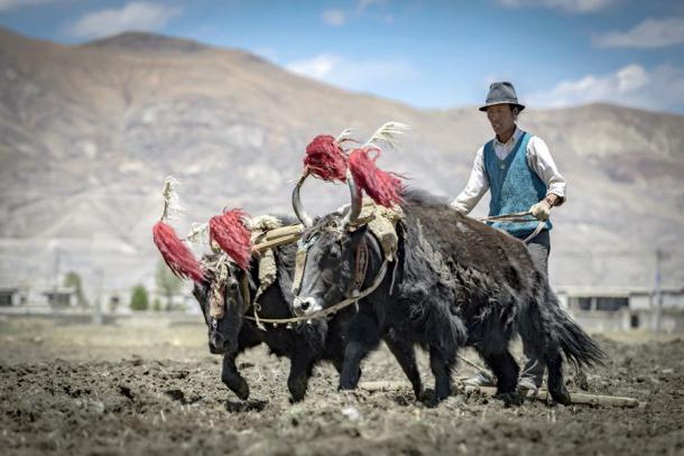Tibetans can bring 'super powers' from another human species
The work, carried out by a team of scientists from the University of California at Davis (UC Davis), has just been published in the scientific journal Trends in Ecology and Evolution.
Research shows that the Denisovans came to the Tibetan plateau 160,000 years ago and there were 2 periods when both the Denisovans community and the Homo sapiens community (our modern humans) exchanged and arose interracial marriage.

Tibetans live extremely healthy in harsh and oxygen-starved places thanks to inheriting "superpowers" from an extinct human species.
The ancestors of different species passed on some special genes to the daughters of two bloodlines. These women continue to carry precious genetic resources to later generations of Tibetan Homo sapiens, maintained until now - about 20,000 - 30,000 years after the other ancestors went extinct.
These genes allow the Tibetans to be highly adaptive to high altitudes, breathe well, live well with very low oxygen levels on the Tibetan plateau and are unique genes that no other Homo sapiens community has. . Tibet is famous for being a harsh highland, where most outsiders have serious health problems due to lack of oxygen.
According to Phys.org, the main factor creating the superpower is the Endothelia Pas1 (EPAS1) gene, which significantly improves the circulation of oxygen in the blood, common in modern Tibetans and Siberian women. An ancient version very similar to this gene was found when scientists found mitochondrial DNA, extracted from the thumb bone of a Denisovans girl discovered in the Altai Mountains, Siberia.
According to Ancient Origins, settlement evidence shows that Denisovans occupied the Tibetan plateau 160,000 years ago, while modern humans arrived in three groups, at 40,000, 16,000 and 8,000 years ago, respectively. It was the group of Homo sapiens that first arrived in Tibet that were endowed with this "superpower".
- Stunned with plants possessing 'super powers'
- Tibetans evolve the fastest in the world
- Why do Tibetans live on the roof of the world?
- Tibetans live on high mountains thanks to 'extinct relatives'
- Australia: Lightning strikes do not die, also appear super abilities
- People with super powers make science impossible to explain
- 5 Extremely rare superpowers you may be possessing without knowing
- What species is dominating the Earth?
- Will humans live long in space?
- The five 'descendants' have more sublime power than the blind prophet Vanga
- 8 technologies that the Pentagon is pursuing to create super troops
- Discovered more human species have existed alongside us for 200,000 years
 The truth about the mysterious red-haired giant at Lovelock Cave
The truth about the mysterious red-haired giant at Lovelock Cave Inunaki Tunnel: The haunted road leading into Japan's 'village of death'
Inunaki Tunnel: The haunted road leading into Japan's 'village of death' The mystery of the phenomenon of human reflection before dying
The mystery of the phenomenon of human reflection before dying 6 mysterious phenomena, although science has been developed for a long time, still cannot be answered
6 mysterious phenomena, although science has been developed for a long time, still cannot be answered